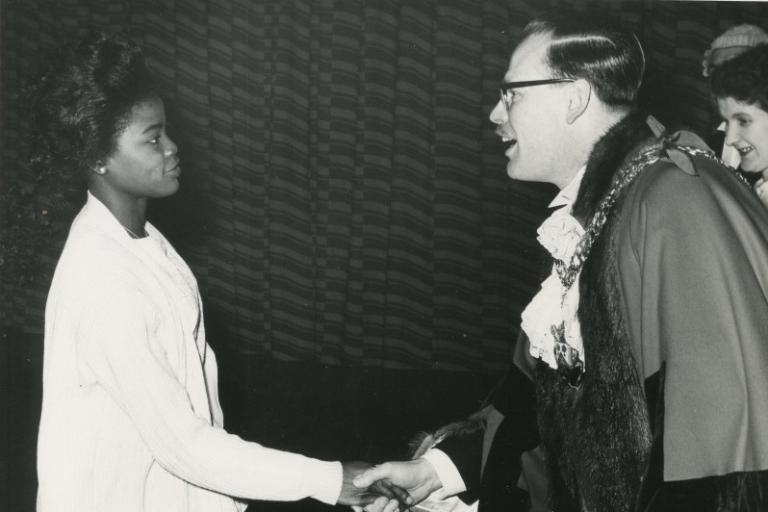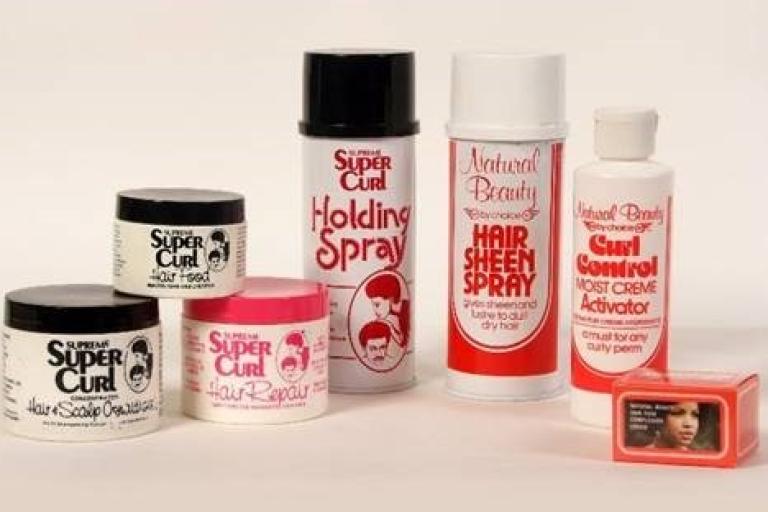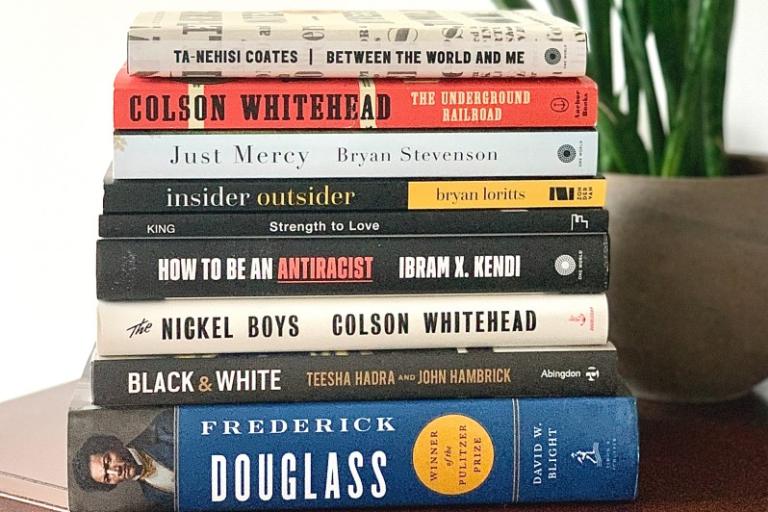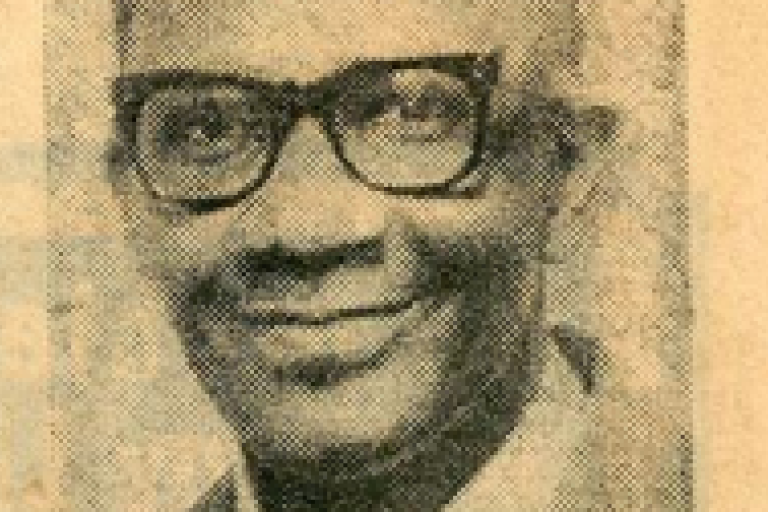1960s
- 1961 - Welcome to Citizenship launched by Hornsey Council, welcoming all 21 year-olds entitled to vote
- 1962 - Commonwealth Immigrants Act was passed to make temporary provision for controlling the immigration of Commonwealth Citizens to the UK.
- 1962 - Nelson Mandela visited Oliver Tambo at his home in Muswell Hill for secret meetings with other leaders of the African National Congress (ANC) Tambo was President of the ANC from 1967 to 1991 and served in exile until 1990, when the ban against the ANC was lifted

- 1964 - Hornsey Co-operative Credit Union was set up by members of Ferme Park Baptist Church unable to get credit from banks. Credit unions, known as pardner or susu, were widespread in the Caribbean and members paid weekly contributions. Hornsey Credit Union was the first in Britain. Two founder members, Basil Lewis and Blair Greaves became Haringey councillors. In 2012, the union merged with London Capital Credit Union
- 1965 - Race Relations Act passed
- 1965 - North London West Indian Association (NLWIA) formed. Secretary Jeff Crawford was a pioneering campaigner against racism. Jeff was Haringey Council’s senior community relations officer from 1976 to 1987, later appointed as an ethnic minority member of the Police Complaints Authority. He was a member of the Metropolitan Police independent advisory group from 1998 to 2003

- 1965 - Dyke & Dryden opened a small retail shop in West Green Road. Len Dyke and Dudley Dryden initially sold records and products for black skin and hair. By 1973, they focussed solely on selling black beauty, hair and cosmetic products. The founders used their own money to set up the company as High Street banks did not support black businesses. By 1986 the company had numerous branches and an annual turnover of £5 million
- 1966 - Guyana born Arif Ali opened Fruitex, a greengrocer’s on Tottenham Lane stocking Caribbean produce. Customers travelled across London to socialise and discuss politics. Arif used a Gestetner machine to reproduce articles from Caribbean newspapers for his customers. He set up a cooperative with members of the Hornsey Credit Union, and weekly contributions could be left at Fruitex. Proceeds from selling the business financed the publication of the ‘ Westindian Digest’. The venture became Hansib Publications, producing ‘Westindian World’, ‘Caribbean Times’, ‘Asian Times’, and ‘African Times’.

- 1966 - New Beacon Books was founded by John La Rose and Sarah White. Based in Stroud Green Road, it was the UK’s first black publisher, a radical and specialist bookshop and international book distributor. John established the Caribbean Artists’ Movement and later the George Padmore Institute. In the 1970s he was a founder member of the Black Parents’ Movement
- 1967 - Fashion designer Ozwald Boateng was born in Muswell Hill. His parents emigrated from Ghana in the 1950s. Ozwald was bought a purple mohair suit at the age of eight. He most famously went on to establish his acclaimed tailoring business in Saville Row. In 2008, he joined the REACH committee, as part of an independent panel to identify and recruit national role models who work to help raise aspirations of black boys
- 1967 - Historian and writer CLR James delivered a speech in London, opening with the words “Mr Chairman, Ladies and Gentlemen, Black Power. I believe that this slogan is destined to become one of the great political slogans of our time. Of course, only time itself can tell”.

- 1968 - Jamaica born Basil Lewis became Haringey’s first black councillor, elected as Conservative member for Stroud Green Ward
- 1968 - Conservative MP Enoch Powell delivered his ‘Rivers of Blood’ speech in Birmingham, criticising mass immigration
- 1968 - Wesley de Mendonca from Guyana was appointed to Haringey Council’s Town Clerk Department to carry out duties in community relations

- 1969 - Haringey Council’s ‘ Report to the Education Committed on Comprehensive Education’ recommended a controversial banding system across Haringey’s Comprehensive Schools. An earlier leaked document, the ‘Doulton Report’, stated that academic standards would be lower in schools with a large proportion of children from the West Indies. The NLWIA’ s counter report, ‘ The Real Challenge’, warning parents of the proposals was widely circulated in the black community. The campaign led to the withdrawal of proposals by the Conservation administration. After the 1970 local election, banding was dropped by the new Labour Council
- 1969 - On 26 October Patsy Peltier Scott, now of Haringey U3A, was crowned Miss Afro Caribbean of Great Britain


